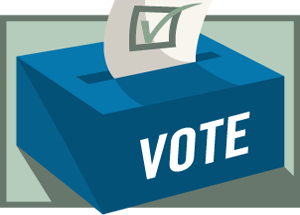Under the U.S. Constitution, the United States is a democracy that is ruled by the people. As such, elections are an important component to the democratic process where citizens have the opportunity to share their voice in government and decide on which leaders are elected. In contrast, not all countries worldwide allow citizens to select the nation’s head of government. Monarchies, for example, usually have one leader who retains political status by birth. Dictatorships and authoritarian leaders in other countries typically seize power through force and limit individual rights and participation in government.
In the United States, the political process is characterized by many different features that shape local, state, and national elections. For example, the Constitution defines the terms of office for elected officials ranging throughout the legislative branch to the U.S. President. Furthermore, the years following George Washington’s unanimous election as the first U.S. President gave rise to a two party system where opposing political viewpoints compete for power (today, these are the Democratic and Republican parties). Political parties help to identify nominees for office, organize and inform voters, and campaign for their candidates to win the election. Overall, the election process means that each individual is responsible for shaping the nation’s public policy by selecting officeholders who they trust to make decisions that will benefit the common good.
Thumbnail
